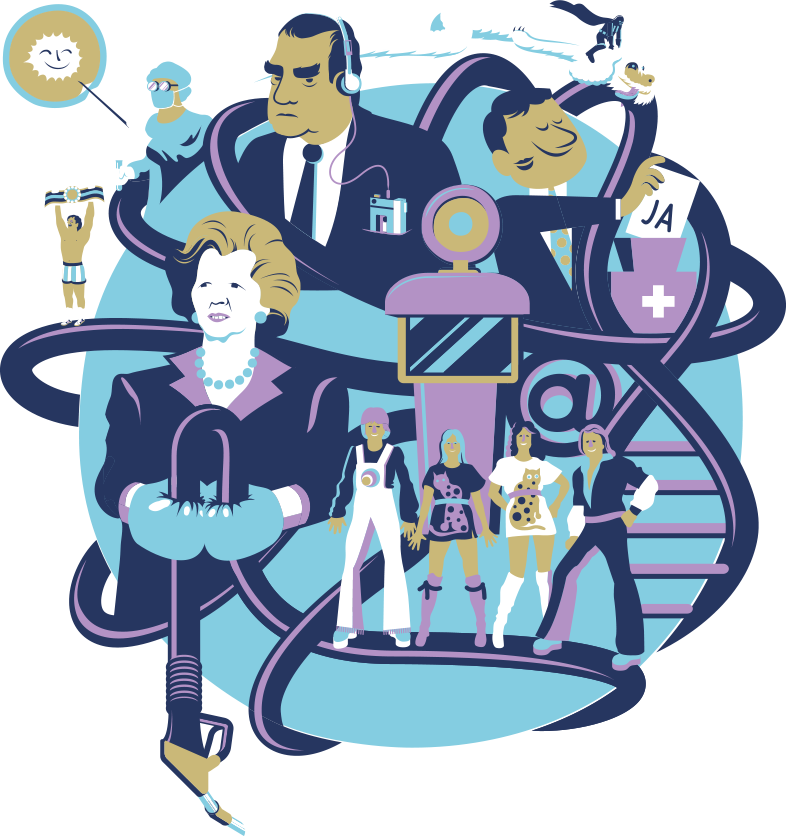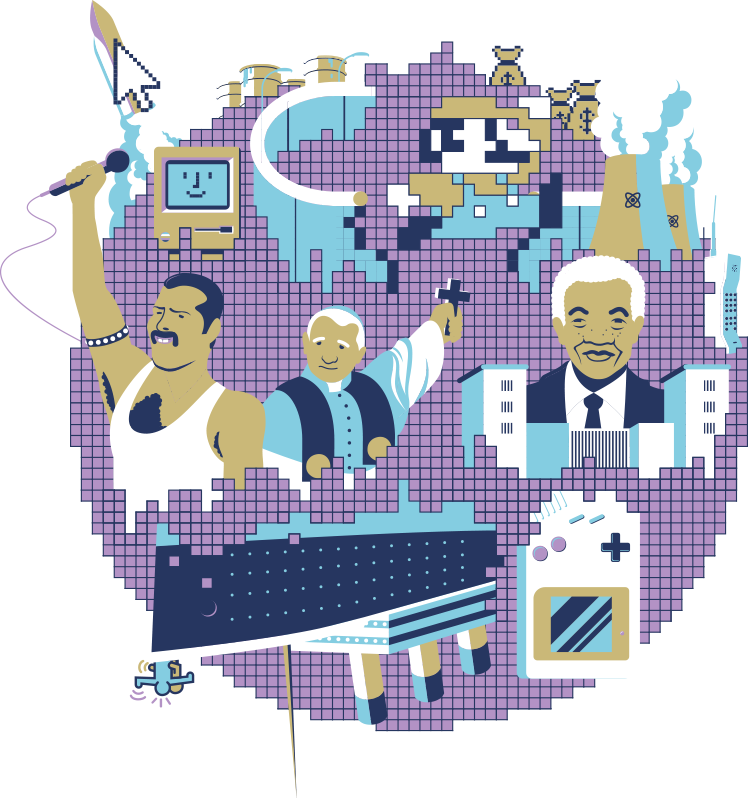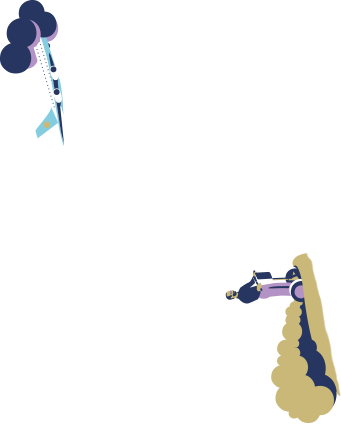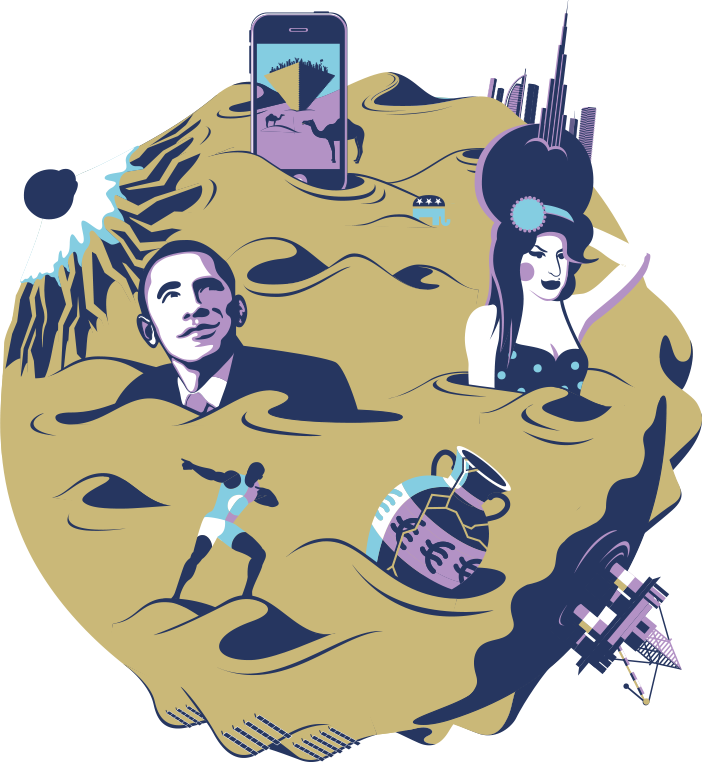1956–1962
World events
1956
Hungarian Revolution and invasion by the Soviet Army • Elvis Presley finds fame with “Hound Dog” • Global population reaches 2.8 billion
1957
The world enters the age of space exploration with the launch of the first artificial earth-orbiting satellite Sputnik 1 in the USSR • The Treaty of Rome establishing the European Economic Community (EEC) is signed • The European Atomic Energy Community (Euratom) is established • The Fiat 500 is launched on the market
1958
The satellite Explorer I is launched in the USA • The Equal Rights Act is passed in Germany
1959
The revolution in Cuba is successful, and Fidel Castro becomes President • Tibetan uprising: China annexes Tibet, and the Dalai Lama flees to India • A referendum in Switzerland on women’s suffrage is rejected
1960
The European Free Trade Association (EFTA) is established • The contraceptive pill is introduced to the market • The laser beam is invented
1961
The Berlin Wall is built by the GDR • John F. Kennedy becomes President of the United States • The Vostok spacecraft embarks on the first human space flight • Audrey Hepburn plays the leading role in Breakfast at Tiffany’s
1962
The Cuban Missile Crisis between the USA and the USSR is caused by the deployment of Soviet ballistic missiles • Second Vatican Council opens in Rome (and closes in 1965) • Marilyn Monroe commits suicide • First James Bond film, Dr. No • The exhibition of Andy Warhol’s Campbell’s Soup Cans opens
Financial centre
1956
Up until 1956, there are only two banks in Liechtenstein: Liechtensteinische Landesbank (LLB) as a public-law institution and the private Bank in Liechtenstein AG (BiL).
1960
Switzerland joins the EFTA: due to the customs union, the agreement is also applied to Liechtenstein, which is not permitted to become an independent member.
1961
Liechtenstein’s first banking law comes into force on 27 January.
VP Bank: An aspirational mindset
1956
Princely Councillor of Commerce Guido Feger (1893–1976), owner of Allgemeines Treuunternehmen (ATU) in Liechtenstein, receives a license to “run a banking business” on 4 April. As this license is initially tied to Feger personally, the Bank has to refrain from conducting domestic transactions in order to avoid finding itself in competition with the LLB. On 6 April, Guido Feger founds Verwaltungs- und Privat-Bank Anstalt with an initial capital of CHF 2 million.
1957
Olaf Walser (ATU), the long-time closest confidant of the founder Guido Feger, is appointed as VP Bank’s first authorised officer. In January 1963, he is elected to the Board of Directors, of which he remains a member until 2001; he assumes the role of Vice Chairman for a quarter of a century.
1960
Princely Councillor of Commerce Dr Heinz Batliner takes over as General Manager and makes a decisive contribution to various aspects at the Bank.
Olaf Walser obtains a license for the operation of a currency exchange office and thus helps the ambitious VP Bank to open a counter at Städtle 14, Vaduz.1962
In accordance with the provisions of the new Banking Act, the Verwaltungs- und Privat-Bank Anstalt is converted into a joint-stock corporation at the end of the year. The equity capital is owned by the “Stiftung Fürstl. Kommerzienrat Guido Feger” foundation, with which the founder provides the shareholder base with a solid foundation that lasts beyond his lifetime.







































